FDIC-Duke Financial Technology Conference

Biographies
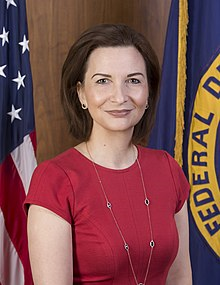 Chairman, Federal Deposit Insurance Corporation
Chairman, Federal Deposit Insurance Corporation
Jelena McWilliams was sworn in as the 21st Chairman of the FDIC on June 5, 2018. She serves a six-year term on the FDIC Board of Directors, and is designated as Chairman for a term of five years.
Ms. McWilliams was Executive Vice President, Chief Legal Officer, and Corporate Secretary for Fifth Third Bank in Cincinnati, Ohio. At Fifth Third Bank she served as a member of the executive management team and numerous bank committees including: Management Compliance, Enterprise Risk, Risk and Compliance, Operational Risk, Enterprise Marketing, and Regulatory Change.
Prior to joining Fifth Third Bank, Ms. McWilliams worked in the U.S. Senate for six years, most recently as Chief Counsel and Deputy Staff Director with the Senate Committee on Banking, Housing and Urban Affairs, and previously as Assistant Chief Counsel with the Senate Small Business and Entrepreneurship Committee.
From 2007 to 2010, Ms. McWilliams served as an attorney at the Federal Reserve Board of Governors, where she drafted consumer protection regulations, reviewed and analyzed comment letters on regulatory proposals, and responded to consumer complaints.
Before entering public service, she practiced corporate and securities law at Morrison & Foerster LLP in Palo Alto, California, and Hogan & Hartson LLP (now Hogan Lovells LLP) in Washington, D.C. In legal practice, Ms. McWilliams advised management and boards of directors on corporate governance, compliance, and reporting requirements under the Securities Act of 1933 and the Securities Exchange Act of 1934. She also represented publicly- and privately-held companies in mergers and acquisitions, securities offerings, strategic business ventures, venture capital investments, and general corporate matters.
Ms. McWilliams graduated with highest honors from the University of California at Berkeley with a B.S. in political science, and earned her law degree from U.C. Berkeley School of Law.
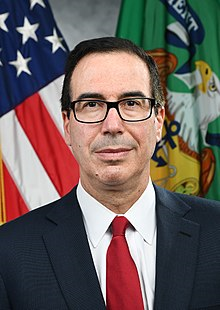 Secretary of the U.S. Treasury
Secretary of the U.S. Treasury
Steven Terner Mnuchin was sworn in as the 77th Secretary of the Treasury on February 13, 2017.
As Secretary, Mr. Mnuchin is responsible for the U.S. Treasury, whose mission is to maintain a strong economy, foster economic growth, and create job opportunities by promoting the conditions that enable prosperity at home and abroad. He is also responsible for strengthening national security by combating economic threats and protecting our financial system, as well as managing the U.S. Government’s finances.
Secretary Mnuchin has played a pivotal role in advancing the Administration’s economic agenda, including the passage and implementation of its key legislative achievement, the Tax Cuts and Jobs Act. He also leads the Treasury Department’s regulatory reform efforts. Secretary Mnuchin is chair of the Committee on Foreign Investment in the United States (CFIUS) and is a member of the National Security Council. He is responsible for using economic tools to combat terrorist financing and other threats to the United States and our allies.
Prior to his confirmation, Secretary Mnuchin was Finance Chairman for Donald J. Trump for President and traveled extensively with the President. He also served as a Senior Economic Advisor to the President in developing his economic agenda.
Prior to his confirmation he also served as Founder, Chairman, and Chief Executive Officer of Dune Capital Management. He founded OneWest Bank Group LLC and served as its Chairman and Chief Executive Officer until its sale to CIT Group Inc. Earlier in his career, Secretary Mnuchin worked at The Goldman Sachs Group, Inc. where he was a Partner and served as Chief Information Officer. He has extensive experience in global financial markets and investments.
Secretary Mnuchin is committed to philanthropic activities and previously served as a Member of the Boards of the Museum of Contemporary Art Los Angeles (MOCA), the Whitney Museum of Art, the Hirshhorn Museum and Sculpture Garden on the Mall, the UCLA Health System Board, the New York Presbyterian Hospital Board, and the Los Angeles Police Foundation. He was born and raised in New York City. Secretary Mnuchin holds a Bachelor's Degree from Yale University.
 Assistant Professor of Finance, Goizueta Business School, Emory University
Assistant Professor of Finance, Goizueta Business School, Emory University
Tetyana Balyuk Tetyana Balyuk is an Assistant Professor of Finance at the Goizueta Business School, Emory University. She holds a PhD in Finance from the Joseph L. Rotman School of Management, University of Toronto as well as a CSc and an MSc in International Economics, both from the Taras Shevchenko National University of Kyiv. Prior to her position at Emory University, Tetyana was an Assistant Professor at the International Finance Department of the Taras Shevchenko National University of Kyiv and an Economic Advisor for Telenor Group Ukraine.
Tetyana's area of expertise is empirical Corporate Finance with a specific focus on financial technology (FinTech) and lending. Her research received the NFA Best Paper on FinTech Award in September 2016. Tetyana is interested in whether FinTech innovation can mitigate financing frictions and correct market failures in markets with asymmetric information and adverse selection. She is also interested in whether the issuance of information-intensive debt can benefit corporations. Tetyana's research projects link her line of inquiry to literatures on capital structure, financial intermediation, and household finance.
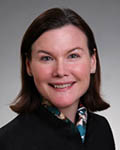 Educator, Investor, and Entrepreneur in the FinTech sector
Educator, Investor, and Entrepreneur in the FinTech sector
Sarah Biller is an Educator, Investor, and Entrepreneur in the FinTech sector. She was recently named by London-based Innovate Finance as one of the Top 150 women leaders in FinTech and Lattice80’s list of Top 100 Women in FinTech in the UK and Hong Kong. She teaches a graduate level course on the evolution of Financial Technology at Brandeis University and is a frequent guest lecturer. She is an LP in Mountain State Capital, a venture capital fund investing in the promising start-ups in the center of the country and sits on the firm’s Board. Ms. Biller is the co-Founder of the FinTech Sandbox, a Boston-based not for profit that accelerates the product development cycle of FinTech start-ups by providing them free access to high quality, diverse datasets.
Ms. Biller was also most recently the Chief Operating Officer for Innovation Head at State Street Bank’s Global Exchange division and Head of Innovation Ventures. In this role, Ms. Biller had responsibility for implementing large scale data science, machine learning, natural language processing and predictive analytics. She the creation and / or purchase of proprietary datasets, including the client consent data process and the development of processes, procedures and technology applications to ensure the data acquisition process met standards set by audit, compliance and legal.
Prior to joining State Street, Ms. Biller has been a Principal in the launch of several successful venture-backed start-ups in the FinTech and Life Sciences sectors. Most recently she was the Co-Founder and President of Capital Market Exchange (CMX), a venture-backed predictive analytics platform utilizing investor sentiment to help bond investors anticipate near-term changes in spreads. CMX’s clients were large institutional firms managing in excess of $6 trillion of Fixed Income assets.
She is the Independent Director for Finomial, a Boston-based technology firm automating the compliance and regulatory requirements for a global set of Hedge Funds. Ms. Biller also is on the Board of the Nashville-based FinTech back office technology providerCore10 and Durham, NC-based subscription econonmy platform WalletFi. She also sat on the board of a trading platform for Bitcoin Options, Alt-Options, LLC until its acquisition in 2016.
Ms. Biller chairs Ernst & Young’s National selection committee for its Financial Services Entrepreneur of the Year award and also sits on the Advisory Board of multiple FinTech start-ups in the alternative trading, intelligence, blockchain and student loan segments.
She is an active mentor in the Barclays Techstars and StartupBootcamp FinTech accelerators as well as the Founding Advisor for MassChallenge’s new FinTech Lab initiative. Ms. Biller has also held roles at Fidelity Investments; worked on MCI’s corporate venture team; and launched and led research divisions for Fortune 500 CFO’s and treasurers at the Corporate Executive Board.
Ms. Biller studied Finance at West Virginia University and George Washington University.
 Professor, UCLA, Anderson
Professor, UCLA, Anderson
Bruce Carlin joined UCLA Anderson in 2007. While Professor Carlin has expertise that spans the areas of asset pricing, corporate finance, and consumer finance, he is probably best known for his research on consumer behavior in retail financial markets, the clarity of disclosures made by financial institutions, and consumer financial literacy. Professor Carlin received the Swiss Finance Institute Outstanding Paper Award for his research on the complexity of financial products, given annually to the top paper in the field of finance. He has also received the Wharton-WRDS Best Paper Award in Empirical Research.
Professor Carlin is a director of the Financial Research Association and he frequently organizes meetings of the National Bureau of Economic Research. He was an Associate Editor for the Review of Financial Studies from 2011 to 2014 and currently serves as a referee for many top-tier finance and economic journals. In addition to his expertise in finance, Professor Carlin has an M.D. and formerly practiced medicine as a surgical professor at Washington University in St. Louis.
Professor Carlin has been recognized for his teaching acumen as well as his research, earning a number of awards and citations. Besides UCLA, he has also had the opportunity to teach students at the University of Chicago’s Booth School of Business, Duke University, and the University of North Carolina.
 Director, Innovation Division, FCA
Director, Innovation Division, FCA
Nick Cook is the first Director of the newly created Innovation division at the FCA. Nick is accountable for leading the FCA’s RegTech initiatives, its data and analytics strategy, machine learning endeavours, and Innovate activities (including regulatory sandbox, Global Financial Innovation Network, Green FinTech challenge, and direct support). Nick represents the FCA on the European Securities and Markets Authority’s (ESMA) Financial Innovation Standing Committee and is an advisor to the RegTech for Regulators Accelerator Programme (R2A). Nick joined the Financial Services Authority (the FCA’s predecessor) in 2009, initially in its Enforcement and Market Oversight Division. Prior to joining the regulator, Nick qualified as a chartered accountant at KPMG Forensic.
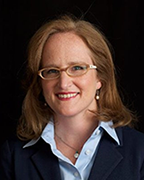 Editor at Large, American Banker
Editor at Large, American Banker
Penny Crosman is Editor at Large at American Banker. Prior to taking on this role, she was Editor in Chief of Bank Technology News and Technology Editor of American Banker. She has held senior editorial roles at Bank Systems & Technology, Wall Street & Technology, Intelligent Enterprise and Network Magazine, among other titles.
 Chief Digital Officer, Eastern Bank
Chief Digital Officer, Eastern Bank
Ashley Nagle Eknaian is a senior vice president at Eastern Bank, where she is the chief digital strategist and head of Eastern Labs. She is responsible for driving innovation and connecting Eastern Bank to the broader fintech ecosystem through experimentation, partnership and investment. She also serves as the program development chair for Brandeis University’s Masters in Digital Innovation for FinTech Program – the first program of its kind in the country. She holds a BS in Business Administration from Boston University and a MBA from Northeastern University.
 Director, Division of Insurance and Research
Federal Deposit Insurance Corporation
Director, Division of Insurance and Research
Federal Deposit Insurance Corporation
Diane Ellis is the Director of the Division of Insurance and Research at the Federal Deposit Insurance Corporation. The Division is responsible for macro risk analysis, banking statistics, deposit insurance pricing and insurance fund management, international outreach, policy development and banking research, both in-house and through the FDIC’s Center for Financial Research.
Ms. Ellis has extensive executive-level experience in deposit insurance pricing and insurance fund management. As Associate Director for Financial Risk Management, she led the FDIC’s efforts in implementing the Federal Deposit Insurance Reform Act of 2005, which resulted in comprehensive changes to the FDIC’s risk-based pricing system and separate systems for large and small banks. During the recent financial crisis, she served as Deputy Director for Financial Risk Management and Research and led the FDIC’s efforts to recapitalize the deposit insurance fund and provide for its liquidity needs. As a result of new authorities granted by the Dodd-Frank Wall Street Reform and Consumer Protection Act of 2010, Ms. Ellis led the development and implementation of a comprehensive, long-term deposit insurance fund management strategy to ensure a viable deposit insurance fund and steady risk-based premiums. Ms. Ellis currently serves on the Executive Council of the International Association of Deposit Insurers.
Ms. Ellis started her FDIC career as a bank examiner in the Orange County, California field office where she examined numerous troubled banks and thrifts during a severe recession. She then joined the Division of Insurance in Washington, D.C. as a Senior Financial Analyst where she analyzed emerging risks to the banking and thrift industries, with particular emphasis on the consumer sector and credit conditions. Other roles Ms. Ellis has served in at the FDIC include Deputy to the Vice Chairman and Special Assistant to the Chief Operating Officer.
Ms. Ellis holds a BBA in Finance from Texas Christian University, Ft. Worth, Texas, and is a Chartered Financial Analyst.
 Partner, QED Investors
Partner, QED Investors
Amias Gerety joined QED as a Partner in 2017 focusing on supporting the portfolio and finding new investment opportunities with a focus on back office technologies and infrastructure companies.
Amias brings a deep background in financial markets, compliance, and RegTech to the QED team. Most recently, Amias served as the President’s nominee and as Acting Assistant Secretary for Financial Institutions at the U.S. Department of the Treasury. In that role, he was the lead advisor to the Secretary on policies affecting financial institutions. He also oversaw a number of programs focused on supporting small business lending and community development. He previously served as the Deputy Assistant Secretary for the Financial Stability Oversight Council, an interagency group of financial regulators charged with monitoring and mitigating potential threats to financial stability. Prior to Treasury, Amias was a management consultant at Oliver Wyman. He also served in a number of policy roles and worked in East Africa for Save the Children. Amias is a recipient of the Alexander Hamilton award, the Treasury’s highest honor.
Amias graduated Magna Cum Laude from Harvard with a BA in Social Studies.
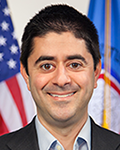 Chief Innovation Officer and Director, LabCFTC at the U.S. Commodity Futures Trading Commission
Chief Innovation Officer and Director, LabCFTC at the U.S. Commodity Futures Trading Commission
Daniel Gorfine is Chief Innovation Officer and Director, LabCFTC at the U.S. Commodity Futures Trading Commission. LabCFTC is dedicated to facilitating market-enhancing innovation, informing policy, and ensuring that we have the technological and regulatory tools and understanding to keep pace with changes to our markets. Daniel is also an Adjunct Professor at the Georgetown University Law Center where he teaches a course on ‘FinTech Law & Policy.’ Daniel was most recently Vice President, External Affairs & Associate General Counsel at OnDeck, and previously served as director of financial markets policy and legal counsel at the Milken Institute think tank where he focused on technology-driven financial innovation, capital access, and financial market policy. Earlier in his career, Gorfine worked at the international law firm Covington & Burling LLP and served a clerkship with U.S. District Court Judge Catherine C. Blake in the District of Maryland. A graduate of Brown University (A.B.), Daniel holds a J.D. from George Washington University Law School and an M.A. from the Paul H. Nitze School for Advanced International Studies (SAIS) at Johns Hopkins University.
 Founder of the FinTech Forge and Alloy Labs
Founder of the FinTech Forge and Alloy Labs
Jason Henrichs is the founder of the FinTech Forge, a managed service provider helping financial institutions build and extend their innovation capacity, and Alloy Labs, a consortium of banks working together to adopt technology and drive innovation. He is also the co-host of Breaking Banks, the world’s largest fintech podcast, and Chairman of FinTEx, a non-profit growing the FinTech cluster across the Midwest. Jason is a frequent speaker on financial innovation, regulation, compliance as competitive advantage, the importance of diversity and the potential for technology to drive financial inclusion. He is on the FinTech advisory boards for the City of Chicago, the AARP, the Center for Financial Services Innovation Lab, and the SXSW Accelerator.
Jason stumbled into financial services in the early 90’s as a manufacturing engineer for Deluxe Corporation. Since leaving paper checks for the digital world, he’s been an entrepreneur, venture capitalist and head of strategy implementation for a public company. In 2008, he co-founded PerkStreet Financial, one of the first challenger banks, helping pave the way for new partnerships between traditional financial service firms and startups.
Jason and his wife are active angel investors in companies that include mobile savings, B2B payments, international payments, investment management, fraud detection, analytics and back office tools.
 Associate Professor of International Economics and Pictet Chair in Finance and Development at the Graduate Institute of International and Development Studies
Associate Professor of International Economics and Pictet Chair in Finance and Development at the Graduate Institute of International and Development Studies
Professor Huang is associate professor of international economics and Pictet Chair in Finance and Development at the Graduate Institute of International and Development Studies and a research affiliate at the Center for Economic and Policy Research (CEPR). Prof. Huang was an economist in the Research Department of the IMF and a research associate of Globalization and Monetary Policy Institution in the Federal Reserve Bank of Dallas. He also has been a visiting PhD student at the UC- Berkeley and a research fellow at the Hong Kong Institute for Monetary Research as well as the visiting assistant professor at the London Business School. Prof. Huang also serves at the Council on Global Economic Imbalances at the World Economic Forum.
Professor Huang’s research consists of international economics, finance, financial economics and emerging market economies, especially the influence of corporation’s financing and investment to financial market and labor market. Recent work focuses on credit markets, household finance, fintech, and Entrepreneurship.
Professor Huang gained his Master’s degree from the China Center for Economics Research, Peking University, and his Ph.D. in International Macroeconomic and Finance from the London Business School.
 Managing Partner of F-Prime Capital’s Tech Fund
Managing Partner of F-Prime Capital’s Tech Fund
David Jegen is Managing Partner of F-Prime Capital’s Tech Fund. He is focused on FinTech and data analytics and has led investments in Flywire, Kensho (acquired by S&P Global), FutureAdvisor (acquired by BlackRock), Toast, Quovo (acquired by Plaid), Cloudant (acquired by IBM), EVEN Financial, Unison and Axoni. David was a co-founder of Sensoria and VP of Product Strategy at Into Networks, a Fidelity Ventures and Venrock-backed company. David was also a senior executive at Cisco Systems and held early positions with J.P. Morgan & Co. and The Boston Consulting Group.
David graduated Harvard Law School and earned degrees in economics and accounting from Indiana University. He is the father of two lovely, lego-crazed children who think he actually works for the Boston Museum of Science (in fact he only serves on the Board of Overseers). David is, however, insanely passionate about Fintech Sandbox, a nonprofit he co-founded to serve FinTech entrepreneurs by aggregating data and infrastructure for free during a startup’s development phase.
 CEO of FinRegLab
CEO of FinRegLab
Melissa Koide is the CEO of FinRegLab, a new organization that leverages technology solutions to achieve public policy aspirations, address regulatory goals, and drive the financial sector towards an inclusive financial marketplace. FinRegLab provides an independent platform for policymakers and regulators, technology and financial sector innovators, and consumer advocates to build an evidence-based understanding of new financial technologies and their impact on consumers and the implications for public policy.
Prior to establishing FinRegLab, Melissa served for four and one-half years as the U.S. Treasury Department’s Deputy Assistant Secretary for Consumer Policy where she developed and executed the Treasury Department’s consumer policies in the areas of credit, student loans, payments, savings, credit reporting, fintech, and financial inclusion. Melissa helped to build the first government offered preretirement savings product, the myRA, and she established the $5 million Innovation Fund to support research and strategies to improve consumers’ financial health and their access to safe and affordable financial products and services.
Melissa is currently Vice Chair of the Milken Fintech Advisory Committee and she is an advisor to the Milken Institute. Before joining the U.S. Treasury Department, she was the Vice President of Policy at the Center for Financial Services Innovation.
 Sarofim-Rock Professor of Business Administration and Co-Director of the Private Capital Project at Harvard Business School
Sarofim-Rock Professor of Business Administration and Co-Director of the Private Capital Project at Harvard Business School
Ramana Nanda is the Sarofim-Rock Professor of Business Administration and Co-Director of the Private Capital Project at Harvard Business School. His research examines financing frictions facing new ventures, with an aim to help entrepreneurs with fundraising and to shed light on how financial intermediaries, corporate R&D and policy makers can improve the odds of selecting and commercializing the most promising ideas and technologies.
He received his Ph.D. from MIT's Sloan School of Management and has a BA and MA in Economics from Trinity College, Cambridge, U.K. He is a recipient of the 2015 Kauffman Prize Medal, that is awarded annually to one scholar under age 40 whose research has made a significant contribution to the literature in entrepreneurship.
 Senior Adviser in the Division of Research and Statistics at the Board of Governors of the Federal Reserve System
Senior Adviser in the Division of Research and Statistics at the Board of Governors of the Federal Reserve System
Robin A. Prager is a Senior Adviser in the Division of Research and Statistics at the Board of Governors of the Federal Reserve System. She joined the Board staff in 1994 as an economist in the Financial Structure Section, and served as Chief of the Financial Structure Section from 2000 to 2007. In her current position, Ms. Prager conducts research and policy analysis on issues surrounding the availability of credit to small businesses and the role of community banks in the U.S. financial system. She has published numerous articles in peer-reviewed academic journals. Ms. Prager received a bachelor’s degree in economics from Harvard University and a PhD in economics from MIT. Prior to joining the staff of the Federal Reserve Board, Ms. Prager served on the faculty of the Owen Graduate School of Management at Vanderbilt University for several years. She has also been a visiting faculty member at Boston University’s School of Management and MIT’s Sloan School of Management, and a Visiting Senior Policy Scholar at Georgetown University’s Center for Business and Public Policy. She currently serves on the board of the Industrial Organization Society and on the editorial boards of the Review of Industrial Organization and Journal of Regulatory Economics.
 J.B. Fuqua Professor of Finance at the Fuqua School of Business, and Senior Advisor, CFR, FDIC
J.B. Fuqua Professor of Finance at the Fuqua School of Business, and Senior Advisor, CFR, FDIC
Manju Puri is the J. B. Fuqua Professor at the Fuqua School of Business, Duke University, and a Senior Advisor at the Center for Financial Research at the FDIC. Professor Puri earned her MBA from the Indian Institute of Management, Ahmedabad, and her PhD in Finance from the Stern School of Business, New York University, after which she joined the faculty of the Stanford Graduate School of Business. She moved to Fuqua in 2003.
Professor Puri's expertise is in the area of empirical corporate finance and financial intermediation, with focus on commercial banks, investment banks, venture capital, entrepreneurship and FinTech. Her research has won multiple awards including two Western Finance Association best paper awards, and three Fama-DFA best paper awards in Journal of Financial Economics. Professor Puri's research has appeared in publications such as American Economic Review, Journal of Finance, Journal of Financial Economics, and Review of Financial Studies. Professor Puri has served as coeditor of the Journal of Financial Intermediation, as well as on the editorial boards of several journals including the Journal of Finance. She is a Research Associate with the National Bureau of Economic Research, and a Senior Fellow of the Asian Bureau of Finance and Economics Research. She has received grants from the FDIC, National Science Foundation, and was selected as an Alfred P. Sloan Foundation Fellow. She has served as the President of the Financial Intermediation Research Society.
Professor Puri has served in a number of regulatory/policy capacities in the U.S. and internationally. She has served on the Financial Advisory Roundtable, as a group of select economists who advise the President of Federal Reserve Bank, New York. She has also served on the Model Validation Council, Board of Governors, Fed, Washington D.C. Professor Puri furthermore has served as Academic Research Council Member, Center for Advanced Financial Research and Learning (CAFRAL), Reserve Bank of India. In addition, Professor Puri has served the Government of India, Ministry of Finance, Bose Committee to advise on commission/incentive structure of the distributors of financial products, Professor Puri's work is relevant in understanding bank-firm and bank-depositor relationships, the scope of bank activities, how shocks to banks get transmitted internationally, and factors underlying bank runs, as well as in investigating the role of venture capitalists in startups, entrepreneurial attitudes, and the emerging area of FinTech.
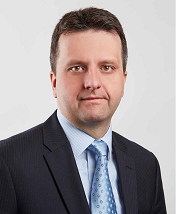 Edward S. Gordon Associate Professor of Real Estate in the Finance Division at Columbia Business School
Edward S. Gordon Associate Professor of Real Estate in the Finance Division at Columbia Business School
Tomasz Piskorski is the Edward S. Gordon Associate Professor of Real Estate in the Finance Division at Columbia Business School. He is also a Research Associate at the National Bureau of Economic Research and serves on the Academic Research Council of the Housing Finance Policy Center at the Urban Institute. Professor Piskorski earned a M.S. in Mathematics from New York University Courant Institute of Mathematical Sciences and a Ph.D. in Economics from New York University Stern School of Business.
Professor Piskorski’s research explores issues in real estate finance, securities and mortgage markets, financial intermediation and banking, market structure and regulation, and housing policy. His recent work centers on inefficiencies in credit markets, financial technology, shadow banking, financial regulation, mortgage market reform, and the impact of consumer credit markets on the broader economy. Professor Piskorski’s research has been published in top academic journals in economics and finance as well as featured in major media, including the Wall Street Journal, the Financial Times, Bloomberg Businessweek, and the Economist. His research and market views have been presented at an array of academic, governmental, and financial institutions, including the U.S. Congress, the U.S. Treasury, the U.S. Department of Housing and Urban Development, the Federal Deposit Insurance Corporation, the Securities and Exchange Commission, the London Stock Exchange, the Federal Reserve Banks, the European Central Bank, the National Association of Home Builders, the Brookings Institution, the Cato Institute, and the Woodrow Wilson Center. Professor Piskorski has been awarded funding from the National Science Foundation and the Pew Charitable Trusts. He received the AQR Insight Distinguished Paper Award that recognizes research that provides the most significant, new practical insights for tax-exempt institutional or taxable investor portfolios.
 Professor of Finance at the Johns Hopkins Carey Business School
Professor of Finance at the Johns Hopkins Carey Business School
Dr. Nagpurnanand Prabhala is Professor of Finance at the Johns Hopkins Carey Business School. he has a PhD in finance from Stern School of Business, New York University, an MBA from Indian Institute of Management, Ahmedabad, and an undergraduate degree in chemical engineering from Indian Institute of Technology, Delhi.Mbr>
Dr. Prabhala's primary research interests are in the area of empirical corporate finance and financial intermediation. His recent research in intermediation focuses on the buy-side competition between funds in the mutual fund industry, syndication patterns in the venture capital industry, and within the FinTech space, robo-advising in the wealth management industry, and the use of soft information such as friendship networks in peer to peer lending. Dr. Prabhala research in banking addresses the nature and real effects of bank runs, the transmission of monetary policy, creditor rights and relationship banking, lending programs targeted at small firms, and different aspects of state-owned banks including their adoption of technology and the effects of the implicit sovereign backing of state-owned banks. Dr. Prabhala has also written extensively in other areas of corporate finance including initial public offerings, self-selection in corporate finance, dividend policy and the cash balances of firms, and topics in corporate governance including board diversity, director elections, and executive compensation.
Dr. Prabhala has held academic appointments at University of Maryland, College Park and Yale School of Management and has been visiting professor at NUS Business School and Indian School of Business. He has served as the head of research at CAFRAL, a research arm of India's central bank, the Reserve Bank of India. Dr. Prabhala is also the inaugural Edelweiss Distinguished Visiting Professor at Indian Institute of Ahmedabad, India.
 Visiting Associate Professor in the Finance Department at MIT Sloan
Visiting Associate Professor in the Finance Department at MIT Sloan
Matthew Rhodes-Kropf is a Visiting Associate Professor in the Finance department at MIT Sloan where he teaches entrepreneurship. Rhodes-Kropf is also a managing partner at Tectonic Ventures as well as a faculty research fellow at the National Bureau of Economic Research.
Rhodes-Kropf’s research on venture capital and exits has been published in many leading finance and economic journals. His work seeks to understand how capital markets interact with the creation of new firms, their financing, growth, governance, and their ultimate exit through a successful IPO or sale or through failure. He has published in leading finance and economic journals, including The Journal of Finance, Journal of Financial Economics, Review of Financial Studies, The RAND Journal of Economics, and The Journal of Business. His 2004 paper "Market Valuation and Merger Waves," published in The Journal of Finance, was nominated for the Brattle Prize for Best Paper in Corporate Finance in 2005.
Previously a faculty member in the Entrepreneurial Management department at Harvard Business School, Rhodes-Kropf has also published many HBS cases. His work has been profiled in the Financial Times, The Economist, the MIT Sloan Management Review,Kauffman publications, Institutional Investor’s Alpha Magazine, PeHub, and many popular blogs. He is regularly quoted in major print media such as The Wall Street Journal, The New York Times, and the Financial Times, and has discussed his work on television, with appearances on CNBC, BBC, and CNN. Matt gives talks throughout the world on the financing of innovation. At Harvard Matt taught the VCPE (venture capital and private equity) course in the MBA elective curriculum and in executive education programs. He also oversees myriad student ventures and has advised literally hundreds of founders. He was also formerly the Daniel W. Stanton Associate Professor of Business at the Columbia University Graduate School of Business, where he taught entrepreneurial finance and received the Dean’s Award for Teaching Excellence.
Rhodes-Kropf is also a managing partner at Tectonic Ventures. Previously he founded RK Ventures, the predecessor to Tectonic, where he managed two successful funds. Matt invested in companies such as Rackspace, Avid Radiopharmaceuticals, Xenex, Kymeta, Humatics, and Axioma among others. Matt was formerly the CFO of Avid Radiopharmaceuticals, where he worked with the founder to launch the firm and the world’s first Alzheimer’s imaging agent. Matt also helped launch a hedge fund as the COO, and has advised many financial firms including Correlation Ventures. Matt is presently a director at Xenex, Avant-garde Health, 55-ip, and at Neighborhood Trust and an advisor to Kymeta and Humatics.
A graduate of Duke University, Rhodes-Kropf holds a BA in computer science and economics and an MA and PhD in economics. Matt is currently on the advisory board for Duke University’s Graduate School.
 Professor of Finance and the J. Rex Fuqua Distinguished Professor of International Management at the Fuqua School of Business
Professor of Finance and the J. Rex Fuqua Distinguished Professor of International Management at the Fuqua School of Business
David Robinson is a Professor of Finance and the J. Rex Fuqua Distinguished Professor of International Management at the Fuqua School of Business. He is also a Faculty Research Associate at the National Bureau of Economic Research, where he serves as the co-Director of the Entrepreneurship Working Group. His research has appeared in leading academic journals in finance and economics, including the Journal of Finance, Journal of Financial Economics, Review of Financial Studies, and the American Economic Review.
Professor Robinson earned an MBA and PhD from the University of Chicago GSB, a Master’s from the London School of Economics, and a Bachelor of Arts from the University of North Carolina. In 2016 he received an honorary doctorate from the Stockholm School of Economics.
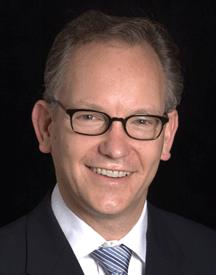 Kingsford Capital Management Chair in Business and Professor of Finance and Real Estate at the Haas School of Business, U.C. Berkeley
Kingsford Capital Management Chair in Business and Professor of Finance and Real Estate at the Haas School of Business, U.C. Berkeley
Richard Stanton is the Kingsford Capital Management Chair in Business and Professor of Finance and Real Estate at the Haas School of Business, U.C. Berkeley, where he has been teaching since 1991. He possesses a Ph.D. in Finance from Stanford and a degree in Mathematics from Cambridge University. His primary research and teaching interests are mortgage markets, term-structure modeling, mutual funds and risk management, and employee stock options. He has published numerous articles in top academic journals, and has been an Associate Editor of several. An accomplished teacher, he has taught Finance classes to undergraduate, MBA, PhD, and MFE students at the Haas School. Outside Berkeley, he has provided extensive consulting services in the areas of fixed income, real estate and mortgage markets.
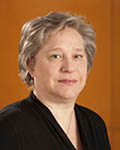 Partner, Davis Polk’s Financial Institutions Group
Partner, Davis Polk’s Financial Institutions Group
Margaret Tahyar is a partner in Davis Polk’s Financial Institutions Group and a member of the firm’s FinTech Group. Her practice focuses on providing strategic bank and financial regulatory advice. She advises banks, financial institutions and technology companies engaging in all types of deals and cases in traditional and cutting-edge financial regulatory topics, including corporate governance and supervisory relationships with regulated boards, bank chartering, payment systems, bank powers and activities, recovery and resolution planning, securities disclosure, capital and liquidity and attorney client privilege in the banking sector. She also frequently advises on the international aspects of transactions and regulatory reform.
Ms. Tahyar has been engaged in financial services advice and regulatory reform since the early 1990s, when she started her career at Davis Polk in the DC office working as a bank regulatory lawyer during the savings and loan crisis, and worked on Glass-Steagall reform for much of that decade. She is an acknowledged leader of the U.S. bank regulatory bar with deep client relations ranging from the largest money-center banks to numerous regional and foreign banks, bringing to bear her experience in Washington in the early 1990s, her transactional experience in the early 2000s, and her work on the Dodd-Frank Act implementation since the financial crisis. From 1997 to 2009, Ms. Tahyar led the firm’s Bank Regulatory and Transactional Practice in London and Paris. She moved to New York during the financial crisis to rejoin the New York Financial Institutions Group.
Her clients include many of the largest domestic and foreign financial institutions, many regional banks and emerging and established technology companies. Ms. Tahyar’s work with Fintech clients has recently included providing strategic advice on the OCC’s special purpose Fintech charter and limited purpose charter, ILC charters, and multiple bank charters. She has worked on almost two dozen living wills for clients ranging from the largest and most complex organizations to smaller regional banks. Her leadership as a bank regulatory lawyer and notable client roster have led to numerous awards, media profiles, appointments, and other distinctions. Chambers Global and Chambers USA both rank Ms. Tahyar in Band 1 for her work in Banking & Finance and Financial Services Regulation, respectively, and IFLR1000 recognizes her as a highly regarded lawyer in the Banking and Financial Services industry sector. She has previously been named “Banking MVP of the Year” by Law360, and was recognized as an “Outstanding Women Lawyer” by The National Law Journal.
In addition to her full time practice, Ms. Tahyar is a frequent author, lecturer and panelist on a broad range of industry topics. She is an adjunct Lecturer-in-Law on financial regulation at Harvard Law School, and recently co-taught a module on FinTech that focused on exploring the impact of emerging technologies on the financial sector. Ms. Tahyar is also a co-author of Financial Regulation: Law and Policy, the leading law school textbook on the subject, and a regular contributor to numerous publications, including FinReg, a Davis Polk blog on financial regulation. She is a Vice Chair of the ABA Banking Law Committee, and a frequent speaker at conferences.
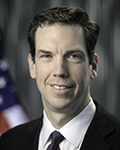 Director of the Office of Innovation at the Bureau for Consumer Financial Protection
Director of the Office of Innovation at the Bureau for Consumer Financial Protection
Paul Watkins is the Director of the Office of Innovation at the Bureau for Consumer Financial Protection. In this role, he oversees the Bureau’s efforts to facilitate innovation, competition, and consumer access within the markets for financial products and services. Watkins was previously the Civil Litigation Division Chief at the Arizona Office of the Attorney General where he managed the state’s litigation in areas such as consumer fraud, antitrust, and civil rights. In Arizona, he drafted and advocated for legislation establishing the first FinTech Sandbox in the country. Previously, Watkins practiced at Covington & Burling LLP in San Francisco, and Simpson, Thacher & Bartlett LLP in Palo Alto, California. He is a graduate of Hillsdale College and Harvard Law School, and a former clerk for Judge Dennis W. Shedd on the United States Court of Appeals for the Fourth Circuit.

